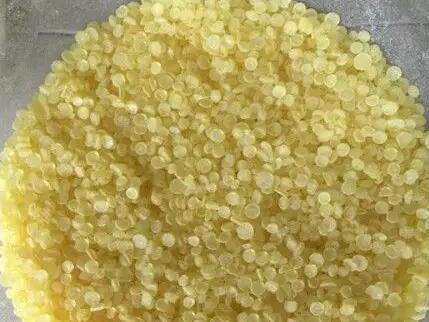Road marking paint resin, as a key component of road marking coatings, has a significant impact on the overall performance and application effectiveness of the coatings due to its adhesive properties. The following is a detailed analysis of the adhesive properties of road marking paint resin:
1、 Definition and Importance of Adhesive Properties
Adhesive strength refers to the ability of resin materials to form a strong bond with the surface of other materials. In road marking coatings, good adhesion can ensure a tight bond between the coating and the road surface, thereby improving the durability and adhesion of the markings. This is crucial for ensuring the clarity and safety of road traffic markings.

2、 Adhesive properties
The road marking paint resin is usually modified through special formulas and processes, and has excellent adhesive properties. This resin can form good adhesion with various road materials such as asphalt, concrete, etc., and maintain stable adhesion performance under different climatic conditions. In addition, the adhesive properties of the resin used for road marking coatings also exhibit the following characteristics:
1. Rapid curing: The resin can cure in a short period of time, forming a hard coating that enhances the durability and wear resistance of the markings.
2. Strong weather resistance: The resin can resist the erosion of external factors such as ultraviolet rays, rainwater, and oil stains, maintaining long-term bonding stability and bright color.
3. Strong adaptability: Resin can be mixed with different types of pigments and additives to meet the needs of different marking colors and properties.
3、 Factors affecting adhesive properties
The adhesiveness of road marking paint resin is influenced by various factors, mainly including:
1. Resin type: Different types of resins have different molecular structures and chemical properties, which affect their adhesive properties. For example, some resins have stronger polar groups that can form stronger hydrogen bonds or van der Waals forces with road materials.
2. Road surface materials: The type, roughness, humidity, and other factors of road surface materials can also affect the adhesive properties of the resin. For example, a wet road surface can reduce the bonding strength between the resin used for road marking coatings and the road surface.
3. Construction conditions: Construction temperature, humidity, wind speed, and other conditions can also affect the curing speed and bonding effect of the resin. For example, excessive temperature may cause the resin to cure too quickly, reducing the bonding strength; However, excessively low temperatures may prolong the curing time and affect construction efficiency.
In summary, the adhesive properties of road marking paint resin are of great significance in ensuring the clarity and safety of road traffic markings. By optimizing the resin formula, improving road conditions, and controlling construction conditions, the adhesive properties of the resin can be further enhanced to meet the application needs of road traffic markings.

 Language
▼
Language
▼


 Address:Linzi District,Zibo City,Shandong Province
Address:Linzi District,Zibo City,Shandong Province E-mail:wanbang@wanbangresin.com
E-mail:wanbang@wanbangresin.com WhatsApp:+8615053337101
WhatsApp:+8615053337101